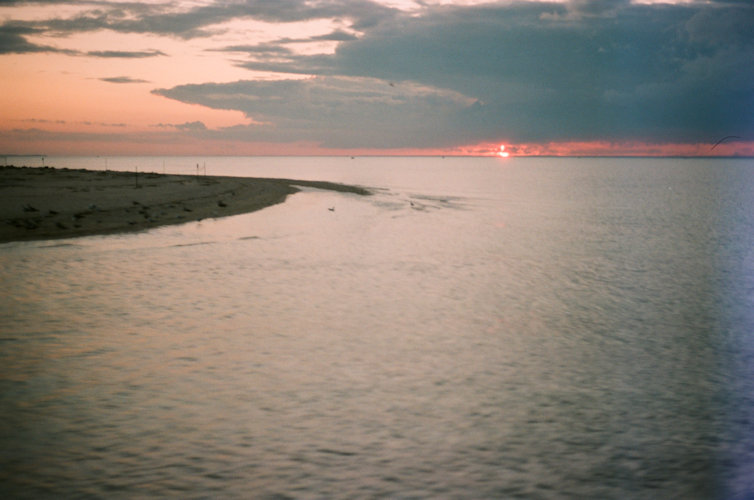Nancy would tell me to write about the crab; the crab’s funny, it’s human, it’s real, not like the oxygen or the catheter or the morphine; the ugly accoutrements to death are too predictable, she’d say, no one wants to see that mess; maybe the crab story is the direction to take, the one I told during that brief interlude before my brother’s last breath (or during, as it turned out), while I sat beside his bed, strangely relaxed, as though I’d taken the morphine instead of him—the small syringe squirts, like a baby bird he opened wide for me—I told the crab story to my brother’s two angels, his caregivers, now my audience, women devoted to my brother despite his hoarding, his spiteful streaks, his refusals to eat the meals they made, saying there was too much butter, too much oil, too much mayonnaise, complaints counterintuitive to the goal: to put weight on his bones (those were real too, those edgy bones, Nancy would agree, but still, she wouldn’t want to see them); my darling ungrateful brother, interchangeably mean and generous, a confusing mix only women would put up with, though I was the only relative present, the only one who held our childhood memories—like the crab—he the eldest, seven years between us (years including two middle siblings who skipped the oxygen and the morphine, too terrified to fly during a pandemic: Who could blame them?), I the youngest, most daring, most reckless, as it turns out, taking the redeye flight from LA to Atlanta at the height of the pandemic, arriving in time to meet his ambulance, in time to greet him after they lowered his gurney, to nod when he whispered, You flew, and tug his blanket up against the December chill, in time to guide my eldest brother to his end—Enough, Nancy would stop me, too sentimental, too morbid, just get to the crab, she’d say, the story I told ten days later, awful days Nancy would suggest I skip even though she called every one of those days, anxious to hear how I was faring, worried I was too soft for this sort of work, death work, an underestimation many made, people who had no idea how strong I am, even Nancy—but back to the crab story I told as I sat beside my brother’s bed, a mountain of cracked crab erected upon a white tablecloth, a craggy pink pile teetering high, the main attraction of the buffet hall, the crystal chandelier above it, the carving table and dessert bar its supporting cast, so much crab, all-you-can-eat, all my brother would eat, plate after plate, spiny legs stacked every which way, empty shells whisked away by silent waiters when my brother rose for another helping, an extravagance we didn’t recognize as ridiculous at the time, for my brother to gobble this delicacy like most fourteen-year-old boys gobbled French fries, my brother stuffing sweet crab into his mouth, foregoing the tiny fork and melted butter, just crab, leg after leg, plate after plate, never denting the mountain, I told the two women, my story so strange—to imagine this skeleton man was once a boy, attacking a mountain of crab by the plateful, back and forth he crossed through the dining room—a rendering so delightful we laughed out loud, and perhaps in that moment (or the one just before we laughed, or the one before that), we missed his last breath, his final moment, the moment we’d been waiting for, watching for, tracking his chest’s rise and fall, the oxygen wheezing along, the backdrop to my storytelling; I’d shifted our attention, what a great story is supposed to do, Nancy would say, to draw upon life just as life was slipping away; The human condition, she’d say, and she should know, for in a few months she’d have her own oxygen and morphine, her family watching for her last breath, perhaps whispering stories, but when her husband called to tell me Nancy was gone, I was back in California, looking at a mountain my brother and I knew so well, a mountain we hiked and skied all our lives, a mountain where I’d spread my brother’s ashes and think about him and Nancy and crab and about how one day I hoped someone would tell a story about me, a story that made everyone laugh so loud and hard that no one noticed I was gone.
__
Lori White’s essays and stories have appeared in Hobart, The Nervous Breakdown, Mud Season Review, and The Kenyon Review anthology, Readings for Writers. She teaches English composition at Los Angeles Pierce College.
Photo by Laura Oliverio


6 comments
Chelsey Clammer says:
May 24, 2022
I have read this essay three times now and I can’t stop re-reading it. It’s so powerful and just a really skilled sentence. Thank you for sharing this with the world!
Josalyn Knapic says:
May 24, 2022
What an amazing essay. Breathtaking sentences.
Angela Mackintosh says:
May 24, 2022
Wow. A powerful meditation on the stories we tell at a loved one’s deathbed in anticipation of that final moment; what we can handle, what we see, what keeps us going. This piece really hits home for me just having lost my father. I’ve read a lot of one-sentence flashes, and this is one of the most skillfully written. I loved the ending, and the way the narrative shifts between the stories of death and crab as if they’re inseparable. Beautiful work.
Jennifer Genest says:
May 24, 2022
Incredible work & brilliant structure. Beautiful & full of heart. Brava, Lori —
Daniel Pessin says:
Jul 6, 2022
Love it! Beautiful story.
Sarkari Jagat says:
Jul 26, 2022
very nice